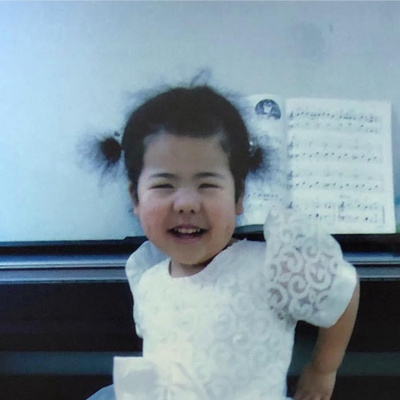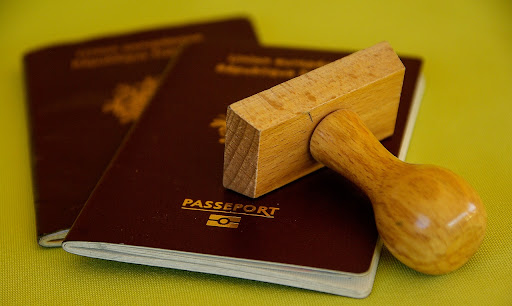In February 2023, an appeal was made by a group of people who claimed that Japan’s dual nationality ban violated the country’s laws. Nonetheless, the Tokyo High Court declared that holding dual nationalities could lead to conflicts between countries. The appeal was dismissed, and the voices of dual citizens were left unheard.
In Japan, a person who possesses a foreign and Japanese passport is obligated to choose one nationality before they reach the age of 20. For the longest time, people have questioned Japan’s policy, some even claiming that Japan’s ban on dual nationality is outdated.
The prohibition of dual nationality makes Japan a minority. According to the Asahi Shimbun, more than 80% of the countries worldwide allow dual nationality as of 2023. Furthermore, within the G7, a group composed of the world’s top seven largest industrialized democracies, Japan stands alone as the only nation to ban dual nationality.
Sofia S. (‘24) holds both an American and Japanese passport, as her father is American and her mother is Japanese. “I don’t really consider myself as ever having lived in the US, although I do visit often to meet my family,” said Sofia, as she explained how she was born in Japan and has lived in several different countries throughout her life. She also claimed that she feels more Japanese than she is American.
“But I guess being part of two cultures enriches my identity in a way,” said Sofia. “My parents used to say that just because you’re half American and Japanese, it doesn’t mean one side of your identity is diminished.”
Even so, when faced with the difficult choice of choosing one side of her identity, Sofia said she would give up her US citizenship. “My parents would want me to keep the Japanese passport,” said Sofia, as she explained that Japanese passports are generally stronger and harder to acquire.
Japan is a country that grants citizenship by descent. Commonly known as “Jan-sanguinis,” this right of blood is defined as ”giving someone its citizenship if they can prove that their bloodline connects them to that country.” Therefore, if either or both parents are of Japanese ethnicity, then the child would automatically gain Japanese citizenship.
On the other hand, Japan generally restricts birthright citizenship. Commonly referred to as “Jan-solis,” countries that allow birthright citizenship grants passports to those who were born in that country. Simply being born in Japan, however, does not entitle a child to Japanese nationality.
However, Japan grants citizenships to individuals from countries that are not recognized as sovereign or independent. In other words, if a child is born in Japan but has ancestral ties to a country not officially acknowledged by the Japanese government, the child would be granted Japanese citizenship.
Aya N. (‘25) holds both a Palestinian and Japanese passport. She has Palestinian parents, but was born and has lived in Japan all her life. Palestine is one of the few countries that is not recognized as a sovereign nation by Japan.
Because of this, Aya was granted Japanese citizenship at birth and was able to acquire a Japanese passport. She emphasizes the privilege there is in terms of having one. “In Japan, they scan my passport, and they just let me through,” said Aya in an interview. Whereas her parents have to apply for visas whenever they visit her brothers in the UK.
In terms of being part of two cultures, Aya said, “I’m mostly in touch with Palestinian culture, and there’s no Japanese influence in my house, (…) but I think mostly living in Japan has impacted more of who I am and what I believe in.”
When asked what she feels about possibly having to give up one of her passports in the future, Aya said that it is a really difficult decision. “Japanese passports are really strong, and I have the privilege of going to many places without a visa,” said Aya. “But I personally think I’m more connected to Palestinian culture.”
Sofia and Aya both mentioned that keeping their Japanese passports would be a better decision, as Japan is widely known for having one of the strongest passports in the world. With a Japanese passport, one could visit approximately 190 countries without the need for a visa.
Nonetheless, this highlights the fact that many people end up choosing the most practical and effective passport, rather than the one that is most important to them culturally.
A feature article by the Japan Times interviewed numerous dual citizens and their experiences on forfeiting their citizenships. If a person applies for naturalization—the act of making a person a citizen of Japan who was not born with that status—they will automatically lose their foreign nationality. A person who had gone through this experience protested: “Asking people to choose between Japan and their other country is legally asking them to stop acknowledging half of their identity. It denies the importance of the other culture and community of which they are a part.”
In order to keep both nationalities, some choose to ignore the law of forfeiting either their Japanese or foreign passports. According to Japanese law, choosing a nationality is a matter of “doryoku-gimu” which roughly translates to “duty of effort.” This means that even if people are obliged to choose one nationality, those who violate the rules would not be penalized for doing so. This leads to a problem of dishonesty.
A survey conducted by the Japan Times revealed that out of the 1,449 people, only 23% decided to give up one of their passports.
Such dual citizens live in a gray zone. It is impossible for the Japanese Foreign Ministry to track down every individual who hasn’t renounced one of their citizenships. Thus, it is widely acknowledged that the Japanese government tends to turn a blind eye to those who maintain both passports.
Additionally, this issue affects not only the people within Japan but also the Japanese citizens abroad. An online article by the Nikkei Shimbun highlights the fact that some individuals working abroad are forced to make choices regarding their citizenship. For instance, Japanese researchers studying overseas are oftentimes required to renounce their Japanese citizenship and acquire a foreign one in order to receive a grant or subsidy.
With the pandemic coming to an end, more foreign workers and technical intern trainees are expected to come to Japan looking for employment and a source of income. Japan could see an increase in the number of people with multiple nationalities and foreign backgrounds.
If Japan fails to rethink its longstanding prohibition on dual nationality, Japan could lose highly talented individuals who were obliged to renounce their Japanese identity. Moreover, the issues surrounding dual citizens who refuse to abandon a part of their identity will remain shrouded in ambiguity.























































